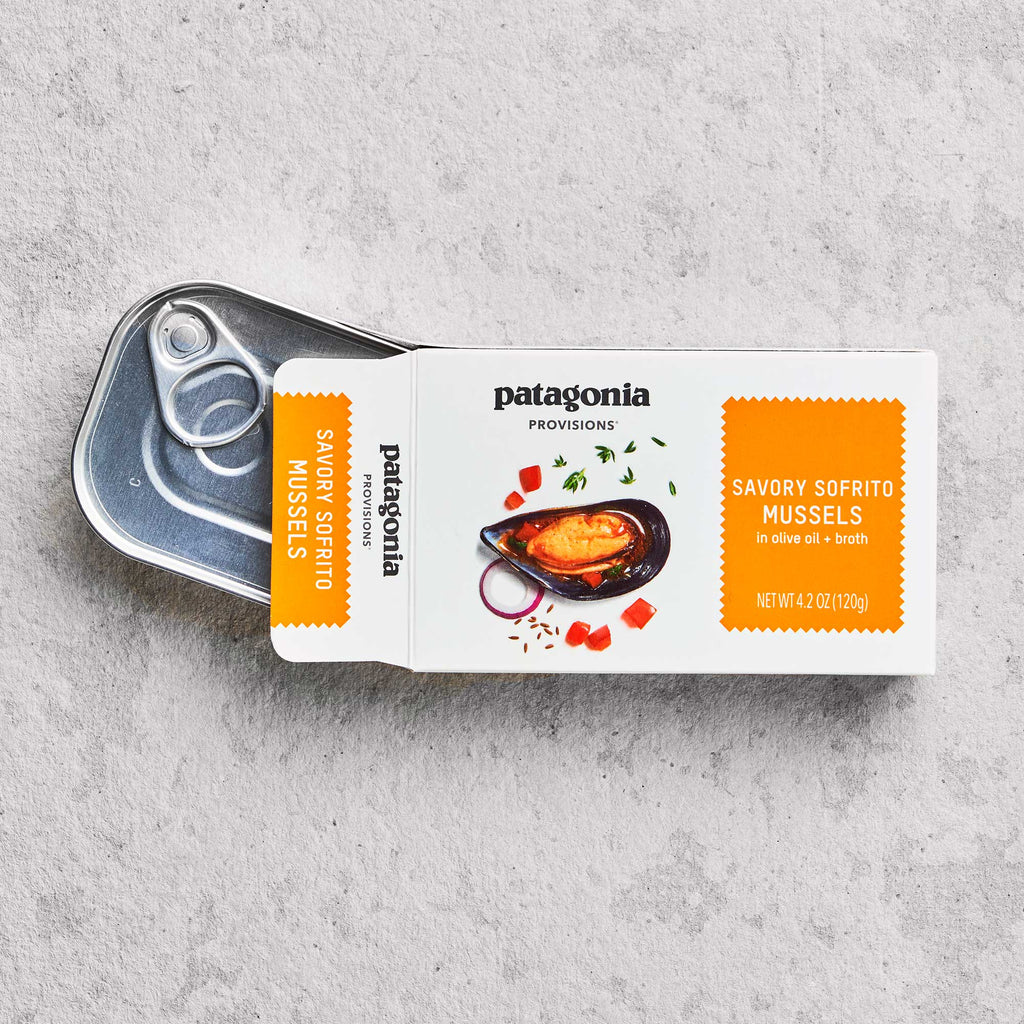The One Type of Brain-Boosting Protein This RD Always Adds to Her Cart
One trending combination has been TikTok’s @dzaslavsky’s tinned mussel and caviar combo served atop a crunchy cracker and garnished with chili oil. Aside from how delicious it tastes, registered dietitians agree tinned fish is well-worth the hype thanks to the boatload of health benefits these tins fit into a tiny can.
@dzaslavsky Snack time is back #markyscaviar #smokedmussles #patagoniaprovisions ♬ original sound - danielle
In that vain, Christina Manian, RDN, a Boulder-based registered dietitian and sustainable food systems professional, shared with us the many benefits of consuming tinned seafood for your body and the planet. Plus, why she keeps this type of brain-boosting protein stocked in her pantry at all times.
What are the health benefits of diving into the tinned fish trend?
According to Manian, tinned seafood contains many essential nutrients that support optimal bodily functioning. “Tinned seafood, in general, is high in protein, healthy fats like omega-3 fatty acids, multiple B vitamins, and vitamin D. It also offers many minerals, including iodine, zinc, iron, and magnesium,” Manian says. “The combination of these nutrients will help you to have lasting energy and a strong immune system while also providing both cardioprotective and neuroprotective benefits. Iodine is also paramount to healthy thyroid function."
{{post.sponsorText}}
Honing in on the rise of tinned seafood, we’ve noticed that one of the most popular products associated with this trend is Patagonia Provisions’ tinned mussels, which Manian says have impressive health benefits. “Tinned mussels, like those from Patagonia Provisions, will have all the same benefits as most other tinned seafood, plus they are especially high in vitamins B12 and A as well as selenium. These nutrients will help you maintain healthy energy levels, strong bones, and vibrant eyes, hair, skin, and nails,” Manian says. Not to mention, one can of Patagonia Provisions’ savory sofrito mussels contains 15 grams of protein.
Most notably, tinned mussels contain omega-3s, which Manian says are important for overall brain health and development throughout our life. “One type of omega-3 fatty acid, docosahexaenoic acid (DHA), is particularly vital for brain cell and neurotransmitter function. Marine-sourced omega-3s have also been correlated with decreased risk for conditions like depression, ADHD, autism, and bipolar disorder,” Manian says. Additionally, the B vitamins and vitamin D found in tinned mussels are associated with improved brain health outcomes.
Tinned seafood is also better for the environment
Aside from the health benefits of consuming tinned seafood, Manian says it’s also good for the environment. “Unfortunately, somewhere around 90 percent of the world’s fish stocks are over-exploited or already exhausted. But buying tinned fish does have its benefits in the sustainability department,” she says. “One automatic win with buying tinned fish, no matter the brand, is that because it’s packaged closer to where it’s caught, you’re saving on the emissions associated with keeping fresh fish on ice and being shipped from as far as the other side of the globe,” says Manian.
However, that’s not to say that all tinned fish is equally as sustainable as the other. “Beyond that, the method of the catch is important. Many fisheries going after large fish like tuna or salmon will use large wall netting that will catch far more than just the fish they’re after, negatively impacting the marine ecosystem of that environment,” Manian says.
To ensure you get the most sustainable catch, Manian recommends carefully reading the packaging. “You want to look for tinned tuna and salmon that have buzzwords on the packaging like pole-and-line-caught, pole caught, troll-caught, FAD-free, school caught, and free school. These terms indicate that the catching method had minimal impact on surrounding marine life,” Manian says.
“You want to look for tinned tuna and salmon that have buzzwords on the packaging like pole-and-line-caught, pole caught, troll-caught, FAD-free, school caught, and free school. These terms indicate that the catching method had minimal impact on surrounding marine life,” Manian says.
In addition to language that indicates sustainability efforts, certifications and initiatives on the label are also good signs. “These brands will be more expensive, but it’s worth it,” Manian says. However, when in doubt, she recommends looking up more information on a type of seafood and products on Seafood Watch or via the Environmental Working Group.
To reap the most benefits from tinned seafood, Manian says you should moderate your consumption of species high on the food chain. “Another thing to be mindful of is how often you’re consuming the tinned fish at the top of the food chain, like tuna and salmon, because they can have higher mercury levels, depending on the source. This is especially important if you’re in a high-risk health group, like pregnant women,” she says. Smaller tinned seafood varieties—like sardines, anchovies, mussels, and other shellfish—are usually a safe bet since they’re lower on the food chain.
All in all, to reap some of the best brain-boosting benefits from tinned fish, Manian recommends combining the seafood with other anti-inflammatory-rich foods, like leafy greens, turmeric, broccoli, any nuts or seeds, avocado, celery, olive oil, and any herbs you love.
“Many of these foods are high in antioxidants that have anti-inflammatory properties to help your brain function at its highest level,” Manian says. But like most things in life, she adds that it’s important not to overdo it. “As with almost every food, enjoy tinned fish in moderation and try to mix up your protein choices throughout the week between plant-based and animal-based sources."
An RD shares more ways to eat sustainably:
Loading More Posts...
